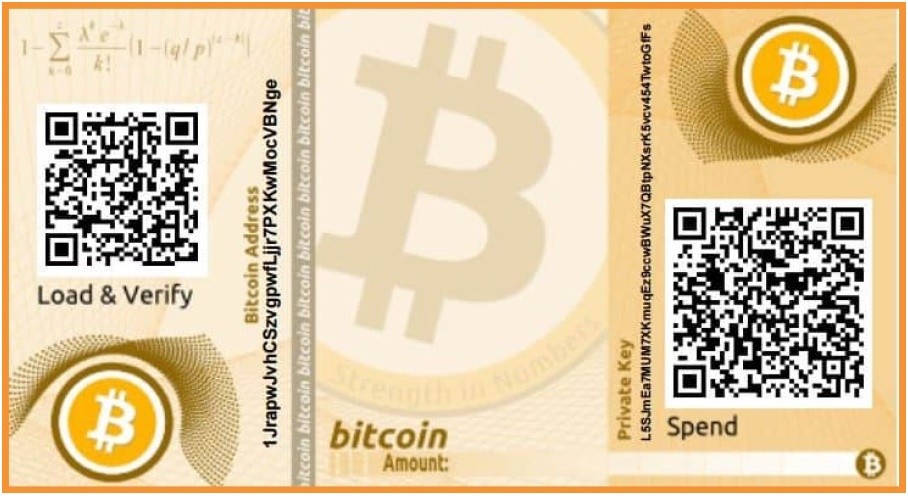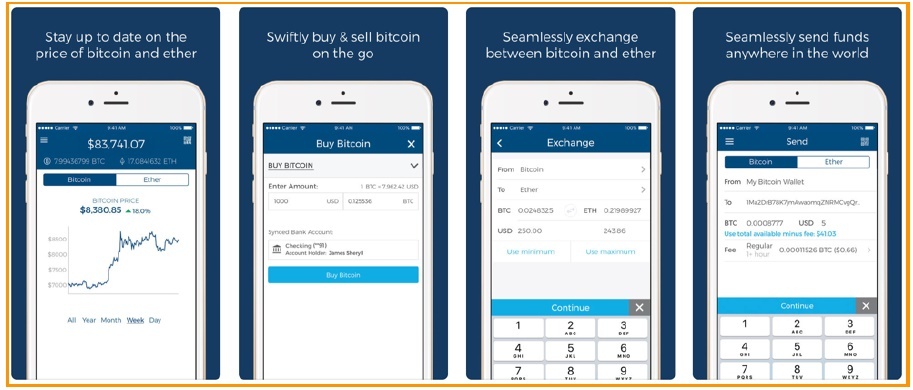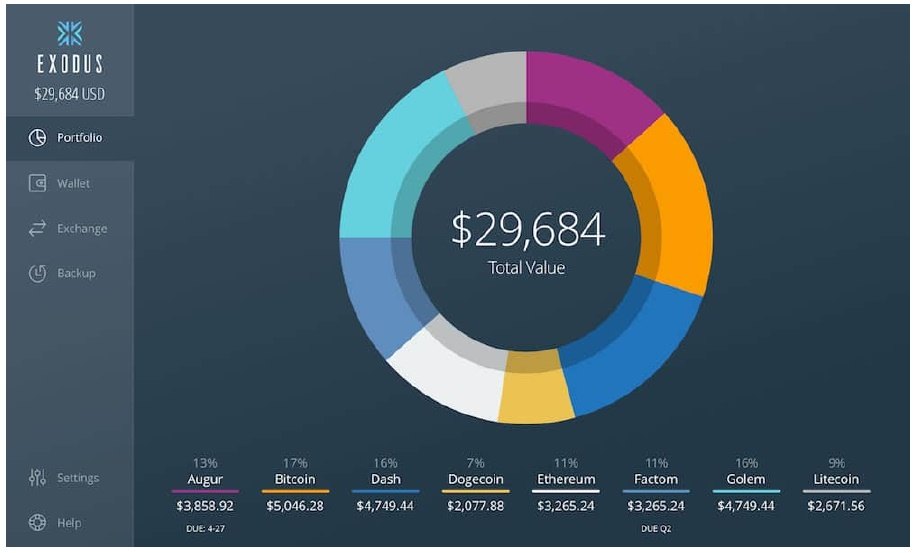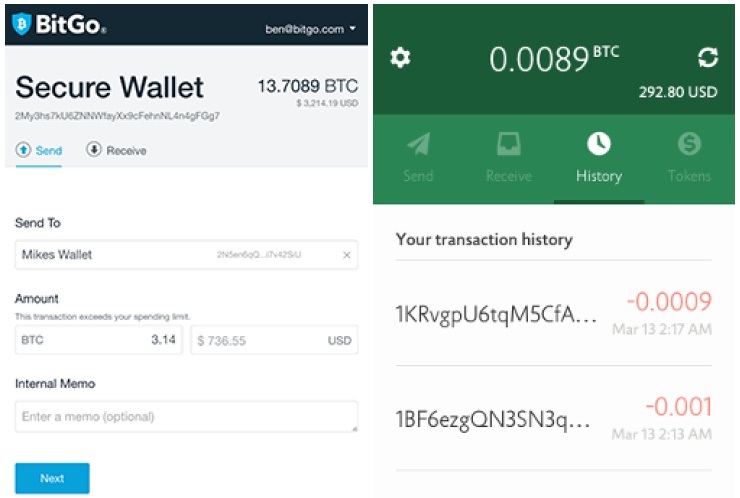How Bitcoins are stored in the blockchain
Public and private keys, blockchain transactions, and why do you need a wallet
In the everyday world, when we pay with cash, wallets are used to store and spend money. It is the same with Bitcoins or any other cryptocurrencies. However, the underlying mechanics is of a different nature. To control your assets and stay safe, you need to understand how things work.
To control your assets on the blockchain, you need to know two numeric combinations - a public key and a private key. The public key is like a postbox that has a unique address and the private key is a unique key that can open this postbox. When you send Bitcoins to your friend, you use their public key as the specific destination address for the transaction. When you spend Bitcoins stored at your own unique address, to confirm the transaction you need to know the private key that matches your public key.
This is where the wallet comes in. A wallet is used to store all the keys you have, to simplify operations with your coins and to keep your keys secret. In fact, you can even transact without a wallet and just keep your public and private keys in your head (this is sometimes called a "brain wallet"). But of course, if you have many keys on different blockchains, a good wallet simplifies the task greatly and reduces the risk of forgetting keys.
Wallet types
There are several key differences between the main wallet types:
-
Platform. You can store your keys on your smartphone, on your PC, on a special electronic device or just on a piece of paper.
-
Connection to the network. When the wallet is always connected to the network, it is called a hot wallet. It is more convenient for making transactions, but it is less secure because hackers can steal your private key. When you want to send your assets to someone, you need to confirm the transaction with the private key and the risk increases. When the key is stored offline, which is known as a cold wallet - it can't be reached by hackers. Cold wallets are good for storing the assets long-term.
-
Security level. As a rule, the more secure the wallet, the more operations you need to perform to confirm a transaction, and vice versa. If you need one-two taps to send your Bitcoins, the security of this type of wallet is generally lower. The solution is to keep the balance and to store major assets in a high-security wallet and to use a simple and convenient wallet for everyday tasks.
-
Comfort and ease of use. Comfortable means simple and quick. The easier the interface and the sequence of actions you need to do what you want, the higher the comfort level. Comfort level also depends on wallet mobility or, in other words, the ability to access the wallet from anywhere.
-
Possibility to store different asset types
-
Exchange access
There are many wallet types on the market, and you can choose the wallet that fits your needs depending on how you plan to use it.
Paper wallet
A paper wallet is a piece of paper with your public and private keys. You can hand-write your keys or use a special tool like bitaddress.org to print them. The key is stored offline, so the security level is potentially rather high. However, you of course need to hide the paper well so it cannot be stolen or copied. Paper wallets are good for storing the assets long-term because you can copy the public key and use it for deposits and reveal the paper only for occasional withdrawals.
You can even memorize the key if you have a good memory, then it's called a "brain wallet". You don't actually need to learn the raw private key which is a string of random symbols, there are ways to simplify the process like converting the private key to a mnemonic seed phrase which is easy to learn.
If you don't want to rely on memory and don't believe in the durability of a piece of paper, you can store your private key in a dedicated time-proof physical wallet. The market offers physical devices to meet this need.
Hardware wallet
A hardware wallet is an electronic device that stores the private key. When you need to make a transaction, you connect the device to the USB port. Hardware wallet receives the transaction, signs it and sends the signed transaction to the blockchain. This way your private key is well protected offline, and you have the comfort of sending bitcoins with just a couple of clicks.
Some brands that make hardware wallets are Trezor, KeepKey, and Ledger.
Mobile wallet
A mobile wallet is an app installed on your smartphone that handles all transactions for you when you need it. It is probably the most convenient wallet type: you always have it with you, you can scan transaction addresses as QR codes with your camera and check balances online. Some wallets come as a part of crypto exchange ecosystem, so you can convert your assets instantly at any time. However, this comfort comes with a price: Mobile wallets are less secure than offline wallets, either paper or hardware. Mobile wallet apps store the private key in your smartphone's memory. If the phone is stolen or hacked, the thieves can gain control over your private key and steal your money.
Desktop client
If you often need to make transactions from your PC or laptop, you may find a desktop client - a dedicated software installed on your PC - comfortable to control your crypto funds. There are many wallet applications for Windows, Mac and Linux OS: Electrum, Bitcoin Core, and ArcBit, to name a few. Desktop wallets store the private key in computer memory. The user is the one responsible for maintaining the system security because if the PC is hacked, the hacker would be able to steal the private key as well. As a rule, desktop operating systems are less secure and less immune to hacker attack than mobile OSes (if no special measures were taken like setting up a firewall and antivirus software), and as a result are considered less secure than mobile ones.
Online Web wallet
A web wallet is just a webpage that you use to manage transactions to and from your blockchain address. The advantage of a web wallet is that you don't need to install and set up any software. It is a website that gives you the control over your funds. You can use this wallet with any platform and device, be it your home PC, a friend's borrowed tablet, or anything else that is connected to the Internet and has a browser.
The drawback of web wallets again is security. First, online wallets hold the user's private key, so if the service provider is hacked, all user funds are lost. Second, any device you use to access your account can have security breaches, be infected with a virus or have a keyboard spying software running in the background. This dramatically increases the risk of your account been compromised. Of course, there is antivirus software that can reduce these risks, but you will not run a full system scan if you dropped by in an internet cafe for a couple of minutes to make one small transaction from your account.
BitGo, and Coin.Space are examples of web wallets you can try.
Multisignature wallets
Blockchain addresses can have more than one private key. This type of wallet is called multisignature. If a multisignature wallet has N keys, and M of them are required to make a transaction, it is called "multisig M of N". Multisig wallets can be used to increase security level (many keys are harder to steal than one) and to divide the responsibility for the funds.
What about other cryptocurrencies? So far we were talking only about Bitcoins. What about Ethereum, Litecoin, Ripple and all the other 1000+ cryptocurrencies? The idea to have one app to control many types of crypto assets is natural. It's like having dollars, euros and several other currencies in your pocket when you go globetrotting. To store different crypto assets like ETH or LTC you also need a public key and a private key. Multi-currency cryptowallets store all public and private keys you have for different blockchains. Some multicurrency wallets are connected to a cryptocurrency exchange, and you can convert your assets directly from your wallet.
Which wallet is better?
The bottom line is that each wallet type is good for its specific purpose. Clever users should understand how wallets work, the advantages and risks of each type, how to diversify assets held and when to use an appropriate wallet type for each individual context. Using a web wallet and storing the private key in your browser memory is not wise for lifetime BTC savings accounts, for example, but is perfectly normal for small one-time transactions. The opposite is also true in that using a paper wallet is clever for storing your major earnings from crypto trading but is very inconvenient if a day comes and you will pay in Bitcoins for your morning coffee.
Lykke's approach
Lykke's mission is to democratize finance. When we designed the Lykke wallet, we wanted to make it simple, secure, comfortable and available for everyone around the globe. Smartphones are still rapidly spreading worldwide. They offer ubiquitous connection to the Internet and are increasingly popular and accessible even in developing countries. That is why Lykke designed a mobile app for iOS and Android - the Lykke Wallet. It has a secure Private Wallet tab and a Trading Wallet tab to convert all asset types supported by the Lykke Exchange.
The Private Wallet is like a vault where you store major assets you plan to hold long term. Lykke Private Wallet supports Bitcoin and Ethereum-based cryptoassets. You can create several private wallets for BTC and ETH, and all private keys from these wallets will be stored in your smartphone in a secure area designed especially for keeping passwords.
The Trading Wallet is always connected to the Lykke Exchange, because LykkeX is centralized. Private keys from the Exchange hotwallet where user's funds are stored are controlled by Lykke and thoroughly protected using our security systems.
You can always transfer assets between trading and private wallets in Lykke Wallet app.
Review
| Platform | Connection | Security level | Comfort | |
| Paper wallet | Paper | Online | High | Low |
| Hardware wallet | Dedicated device | Offline Online on transactions | High | Medium |
| Mobile wallet | Smartphone | Online | Medium | High |
| Dekdtop wallet | Laptop Desktop PC | Online | Medium | Medium |
| Web wallet | Any device with a web browser | Online | Low | High |
| Lykee wallet | Smartphone | Online | Medium | High |
Trading financial products involves significant risk and can result in the loss of your invested capital. You should not invest more than you can afford to lose and should ensure that you fully understand the risks involved. Trading leveraged products may not be suitable for all investors. Before trading, please take into consideration your level of experience, investment objectives and seek independent financial advice if necessary. It is the responsibility of the Client to ascertain whether he/ she is permitted to use the services of Lykke Vanuatu Limited based on the legal requirements in his/ her country of residence. Please read full https://www.lykke.com/cp/terms-and-regulation
Editors’ Picks

GBP/USD bullish outlook prevails above 1.3600, UK GDP data looms
The GBP/USD pair gains ground near 1.3635, snapping the two-day losing streak during the early European session on Thursday. The preliminary reading of UK Gross Domestic Product for the fourth quarter will be closely watched later on Thursday. The UK economy is estimated to grow 0.2% QoQ in Q4, versus 0.1% in Q1.

EUR/USD weakens as US jobs data trims Fed rate cut bets
The EUR/USD pair trades in negative territory for the third consecutive day near 1.1860 during the early European session on Thursday. Traders will keep an eye on the US weekly Initial Jobless Claims data. On Friday, the attention will shift to the US Consumer Price Index inflation report.

Gold remains on the defensive below two-week top; lacks bearish conviction amid mixed cues
Gold sticks to modest intraday losses through the Asian session on Thursday, though it lacks follow-through selling and remains close to a nearly two-week high, touched the previous day. The commodity currently trades above the $5,070 level, down just over 0.20% for the day, amid mixed cues.

UK GDP set to post weak growth as markets rise bets on March rate cut
Markets will be watching closely on Thursday, when the United Kingdom’s Office for National Statistics will release the advance estimate of Q4 Gross Domestic Product. If the data land in line with consensus, the UK economy would have continued to grow at an annualised pace of 1.2%, compared with 1.3% recorded the previous year.

The market trades the path not the past
The payroll number did not just beat. It reset the tone. 130,000 vs. 65,000 expected, with a 35,000 whisper. 79 of 80 economists leaning the wrong way. Unemployment and underemployment are edging lower. For all the statistical fog around birth-death adjustments and seasonal quirks, the core message was unmistakable. The labour market is not cracking.
RECOMMENDED LESSONS
Making money in forex is easy if you know how the bankers trade!
I’m often mystified in my educational forex articles why so many traders struggle to make consistent money out of forex trading. The answer has more to do with what they don’t know than what they do know. After working in investment banks for 20 years many of which were as a Chief trader its second knowledge how to extract cash out of the market.
5 Forex News Events You Need To Know
In the fast moving world of currency markets where huge moves can seemingly come from nowhere, it is extremely important for new traders to learn about the various economic indicators and forex news events and releases that shape the markets. Indeed, quickly getting a handle on which data to look out for, what it means, and how to trade it can see new traders quickly become far more profitable and sets up the road to long term success.
Top 10 Chart Patterns Every Trader Should Know
Chart patterns are one of the most effective trading tools for a trader. They are pure price-action, and form on the basis of underlying buying and selling pressure. Chart patterns have a proven track-record, and traders use them to identify continuation or reversal signals, to open positions and identify price targets.
7 Ways to Avoid Forex Scams
The forex industry is recently seeing more and more scams. Here are 7 ways to avoid losing your money in such scams: Forex scams are becoming frequent. Michael Greenberg reports on luxurious expenses, including a submarine bought from the money taken from forex traders. Here’s another report of a forex fraud. So, how can we avoid falling in such forex scams?
What Are the 10 Fatal Mistakes Traders Make
Trading is exciting. Trading is hard. Trading is extremely hard. Some say that it takes more than 10,000 hours to master. Others believe that trading is the way to quick riches. They might be both wrong. What is important to know that no matter how experienced you are, mistakes will be part of the trading process.
The challenge: Timing the market and trader psychology
Successful trading often comes down to timing – entering and exiting trades at the right moments. Yet timing the market is notoriously difficult, largely because human psychology can derail even the best plans. Two powerful emotions in particular – fear and greed – tend to drive trading decisions off course.





